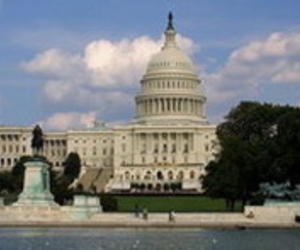U.S. denies it’s ‘currently’ considering removing Cuba from terror list
- Submitted by: lena campos
- Politics and Government
- 02 / 23 / 2013

A newspaper report that top State Department officials believe Cuba should be removed from the U.S. list of countries that support terrorism drew denials Thursday from the department and the White House.
The Boston Globe had reported that “high-level U.S. diplomats” have concluded Cuba should be taken off the terror list, which would allow Secretary of State John Kerry to “remove a major obstacle to restoring relations” with the island. Interviews with “top administration officials and members of Congress indicate there is a growing consensus in policy and intelligence circles that Cuba’s support for terrorist groups has been terminated,” the Globe added.
The report also noted that Kerry, a Massachusetts Democrat who has long favored improving relations with Havana, met in recent days “with officials to review the Cuba policy.”
But the report carefully added that U.S officials “emphasized that there has not been a formal assessment concluding that Cuba should be removed from the terrorism list.
On Thursday, State Department spokesperson Victoria Nuland responded: “I saw that report. Let me say firmly here it is incorrect. This department has no current plans to remove Cuba from the state sponsor of terrorism list.”
“We review this every year, and at the current moment we — when the last review was done in 2012 — didn’t see cause to remove them. We’ll obviously look at it again this year, but as I said, we don’t have any plans at the moment,” she added.
White House spokesman Jay Carney said, “We have no changes in our approach or policy to Cuba to announce or under consideration that I’m aware of.”
Policy makers in Washington are not currently discussing Cuba and the terror list, but that does not mean that down the road the situation will not change, a knowledgeable government official told El Nuevo Herald.
Mauricio Claver-Carone, director of the U.S. Cuba Democracy Political Action Committee in Washington, said removing the island from the list would amount to a “scandalous” concession to the communist government.
Claver-Carone wrote in his blog, Capitol Hill Cubans, that the Globe story notes the George W. Bush administration delisted North Korea in 2008, an irony “because apparently that has worked wonders in tempering the North Korean regime’s criminal behavior.”
The newspaper quotes one unidentified “senior administration official with direct knowledge of Cuba policy” as saying “there is a pretty clear case” that the island doesn’t meet the standard for the terror list anymore.
The State Department’s 2012 terrorism report listed Cuba, Iran, Syria and Sudan. For Cuba, it noted the government’s links to the Revolutionary Armed Forces of Colombia (FARC) and Spain’s Basque Homeland and Liberty (ETA).
There was no indication that Cuba “provided weapons or paramilitary training” to ETA or FARC, the report said. But it said “current and former members’’ of ETA lived in Cuba. “One of them, José Ignacio Echarte, is a fugitive from Spanish law and was also believed to have ties to the [FARC],’’ the report said.
“Reports suggested that the Cuban government was trying to distance itself from ETA members living on the island by employing tactics such as not providing services including travel documents to some of them,” it added. “Press reporting indicated that the Cuban government provided medical care and political assistance to the FARC.”
Havana authorities also “continued to permit fugitives wanted in the United States to reside in Cuba and also provided support such as housing, food ration books, and medical care for these individuals,” according to the 2012 report.
Cuba also has “strategic deficiencies” when it comes to efforts to crack down on terrorism financing and other money laundering, the State Department added.
The Castro government has been on the terror list since it was created in 1982, largely because Cuba trained and armed guerrilla movements from virtually every Latin American nation in the 1960s and 1970s.
The Globe report came after a bipartisan U.S. congressional delegation that included Massachusetts Rep. James P. McGovern, a Democrat, returned from Cuba Wednesday following talks with President Raúl Castro on how to improve relations. McGovern said Cuban officials are “agitated” by their inclusion on the terror list and raised the issue during the talks, according to The Globe.
The key stumbling block to Obama administration gestures toward Havana currently is the detention of Alan Gross, a U.S. citizen serving a 15- year prison sentence in Cuba for delivering illegal communications equipment to Cuban Jews under a U.S. government pro-democracy program.
Cuba has all but openly offered to free Gross in exchange for five Cuban intelligence agents convicted in a Miami trial. Four are serving long sentences in U.S. prisons and one has been released on probation, which must be served in the United States.
Read more here: http://www.miamiherald.com/2013/02/21/3246075/us-considers-removing-cuba...
Comments